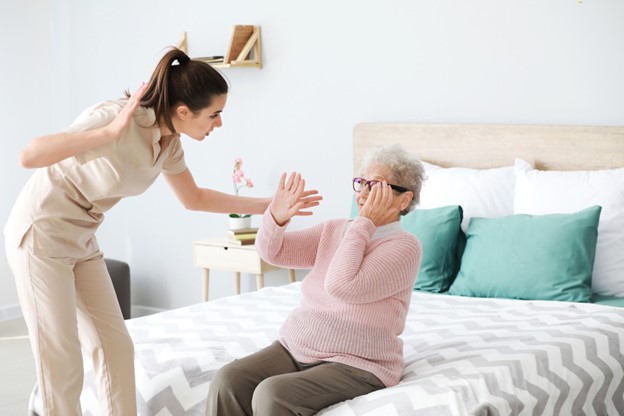As the population of the elderly continues to increase, the number of cases involving nursing home abuse and neglect is also on the rise. Nursing home residents who suffer from abuse or neglect deserve justice, and the legal system provides individuals with the means to seek this justice.
However, filing a nursing home abuse lawsuit can be an overwhelming and complex process. This post aims to provide readers with an understanding of the ten legal processes involved in filing a nursing home abuse lawsuit.
1. Gathering Evidence
The first legal process is gathering evidence of abuse or neglect. This involves collecting all relevant information that supports your claim that the care facility breached its duty of care to your loved one.
It would help if you began collecting this evidence immediately once you suspect any abuse or neglect. This is because the nursing home can clean up any evidence that may point to their wrongdoing.
Some of the evidence that you can gather includes:
- Medical records
- Photos of injuries/wounds
- Witness statements
- Security cameras videos
- Any official reports
This evidence will help you build a strong case that can hold the nursing home accountable for their negligence and the damages they have caused.
2. Finding an Attorney
The second process is finding an experienced attorney who specializes in nursing home abuse cases. Look for attorneys with experience in representing abuse victims in nursing homes. Such lawyers understand the legal process well and will handle your case with the seriousness it deserves.
Your attorney will guide you through every stage of the legal process, from gathering evidence to filing your claim, negotiating with the nursing home, and taking the case to trial if necessary.
Other reasons why you need an attorney include:
- Case evaluation
- Access to resources
- Court representation
- Handling complex legal procedures
3. Filing a Complaint
After you have gathered evidence of nursing home abuse, the next step is to file a formal complaint with the court. This is where you present your case to the court and start the lawsuit. In the complaint, you will need to provide detailed information about the abuse your loved one has experienced.
A lawyer can help you with this process to ensure that you provide all the necessary information. After you have filed the complaint, the nursing home will be served with a copy.
From this point, the nursing home has a certain amount of time to respond to the complaint. This is where the nursing home can deny the allegations made in the complaint or provide any counter-arguments.
4. Pre-trial Discovery
The next legal process for filing a nursing home abuse lawsuit is pre-trial discovery. This is the process where both parties gather information and evidence that will be used during the trial. During this process, the nursing home and your lawyer will exchange documents such as medical records, staff records, and any relevant documents related to the case.
Discovery is also the time you and your lawyer can question witnesses under oath. This is otherwise known as a deposition.
Depositions are conducted outside of court by a court reporter, and the information is recorded and can be used at trial. Depositions can provide valuable information to support your case and can weaken the arguments of the nursing home.
5. Mediation
Mediation is the process of settling a dispute outside of court with the help of a neutral third party. In a nursing home abuse case, mediation can be a cost-effective and time-efficient way to resolve the case. Mediation can also be less stressful and less time-consuming than a trial.
During mediation, both parties will meet to discuss the case and try to reach an agreeable settlement. A mediator will help the parties to communicate and ease the negotiation process.
6. Trial
If mediation does not result in a settlement, the case will proceed to trial. During a trial, both parties will present evidence and the case will be decided by a judge or a jury.
Trials can be expensive, time-consuming, and draining for all involved. It’s important to hire an experienced nursing home abuse attorney who can help you navigate the trial process and make sure that your case is presented effectively.
7. Verdict
After the trial, the judge or jury will render a verdict. If you win your case, you may be awarded damages to compensate you for your losses. Damages can include medical expenses, lost wages, pain and suffering, and more.
If you lose your case, you may have the option to appeal the decision. However, the appeals process can be expensive and time-consuming, and there is no guarantee that you will win a reversal of the decision.
8. Judgment
If the plaintiff (the victim or the family members of the victim) is successful in proving their case, a judgment will be entered. The judge will determine the damages and issue an order against the wrongdoer, which requires them to pay for the damages inflicted upon the victim.
9. Appeals
It is often the last resort for seeking justice for victims of nursing home abuse. After the initial filing of the lawsuit, if the verdict is not in favor of the victim, they have the right to appeal the decision. This involves requesting a higher court to review the case and reverse the decision.
In such a draining and complex situation, it is crucial to have a reliable and experienced legal team by your side. If you or a loved one has been a victim of nursing home abuse, you may visit a website like rplegalgroup.com to seek the help of a reputable law firm to handle your case effectively.
10. Collections
Collections are the process of legally and forcefully obtaining the funds owed to the victim through methods such as wage garnishment or placing a lien on the nursing home’s assets. While it may seem like a daunting process, collections are an important part of ensuring justice for victims of nursing home abuse.
Comprehend the Legal Process for Filing a Nursing Home Abuse Lawsuit
Understanding the legal processes for filing a nursing home abuse lawsuit is crucial for ensuring justice for victims and their families. From gathering evidence to navigating the court system, each step is vital in building a strong case.
If you or a loved one has been a victim of nursing home abuse, don’t hesitate to seek legal support and use these processes to hold abusers accountable. Protect your rights and seek the compensation you deserve.
Like this article? Read more about these topics on our blog.















